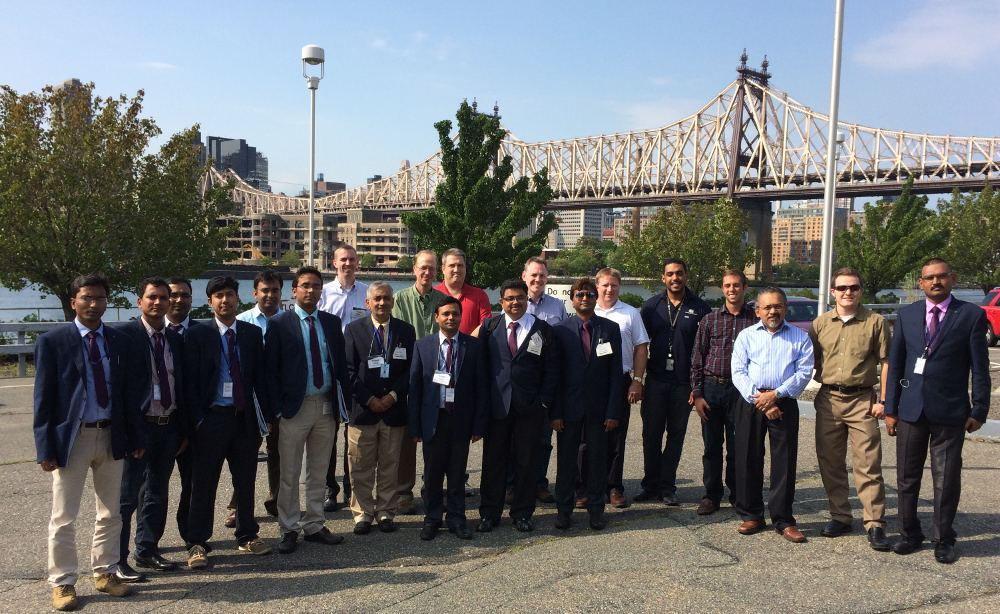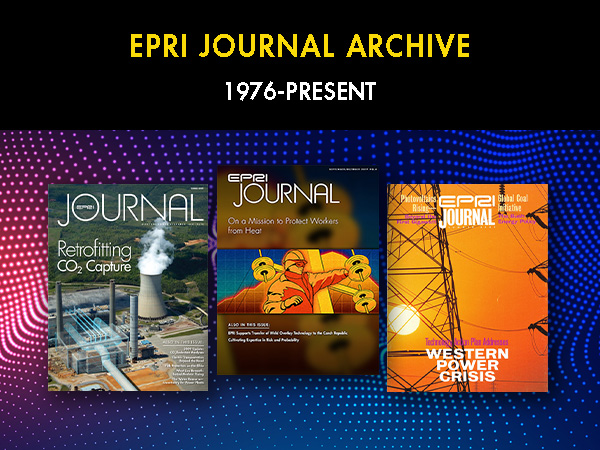
About 2,500 years ago, Greek philosopher Heraclitus memorably declared that the only thing constant in life is change. This applies as much to the 21st century electric power industry as it did to ancient Greece.
In the next five years, industry sources estimate that 40–50% of the U.S. utility sector’s electrical workers will retire. The new generation of workers faces one of the most fundamental changes in the history of electric power: the widespread adoption and integration of distributed energy resources.
EPRI has created an educational initiative to train the next generation of power engineers for this industry transformation. Launched in 2013, GridEd—The Center for Grid Engineering and Education is a five-year, $6.4 million collaboration co-funded by the U.S. Department of Energy (DOE), 14 utilities, 1 independent grid operator, 4 partner universities, and 17 affiliate universities. GridEd’s geographic focus is the Eastern United States, though it’s expanding into the West. The initiative is part of the DOE’s broader Grid Engineering for Accelerated Renewable Energy Deployment (GEARED) project.
“GridEd is addressing two high-level needs: preparing existing and future power engineers for changes in grid operations and replacing a large part of the workforce that is retiring,” said Steven Coley, EPRI’s GridEd project coordinator. “We are sharing the extensive work of EPRI and our partner utilities on integrating distributed energy resources into the grid, and we’re fostering ties with the next generation.”
Curriculum Focused on Changing Grid
With its growing selection of courses, tutorials, and events for practicing engineers and undergraduate and graduate-level scholars, GridEd is gaining momentum as a platform for power-engineering education and utility workforce development. GridEd is also developing teaching materials for primary and secondary schools, and K–12 outreach is underway.
Based on a survey of utility sponsors to identify gaps, GridEd in 2014 offered a tutorial series for industry professionals. The four 2-day courses, held at different locations in the Eastern United States, focused on electric utility industry business case analysis, power distribution systems, distribution system modeling, and distributed storage and generation technologies and applications.
The 59 participants earned a combined 848 hours of professional development. Based on their feedback, GridEd is expanding its short courses for industry professionals to include computer-based distance-learning opportunities.
The first tutorial of 2015—a one-day course at Salt River Project in Tempe, Arizona—provided a summary of the four-course series and emphasized distributed photovoltaic solar. Additional short course offerings in 2015 focus on distributed generation, distribution systems, and smart inverters and their ability to address voltage problems resulting from distributed solar.
Engaging Students
GridEd’s four partner universities—Georgia Institute of Technology, University of North Carolina at Charlotte, Clarkson University, and University of Puerto Rico at Mayaguez—are leading an effort to assess and develop power engineering curricula for university undergraduate and graduate students. The course content will be presented at GridEd’s 4 partner and 17 affiliate universities later in 2015.
University students can further engage in power engineering career development through GEARED student conferences and the GridEd Student Innovation Board, which consists of two students from each partner and affiliate university. The board advises GridEd, serves as a liaison between the initiative and students, and advocates for participation in GridEd activities, such as design competitions and research projects.
For primary and secondary schools, the universities are also helping GridEd develop introductory courses on electricity basics, fossil fuels, and renewable energy technologies. Feedback from high school teachers will help shape more advanced coursework for secondary school students. Georgia Institute of Technology and the GridEd co-funders are leading a summer program at four high schools in the Atlanta area, featuring classroom and laboratory work on solar and battery-powered systems.
“We are constantly developing GridEd and expanding the initiative based on feedback from students, universities, and industry professionals,” said Coley.
EPRI Technical Expert:
Steven Coley


